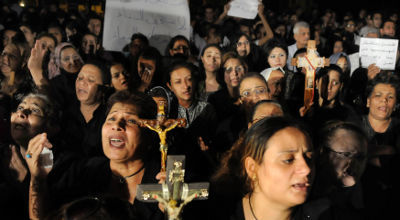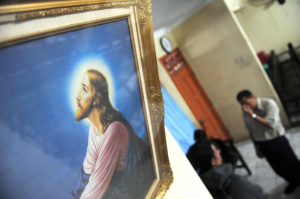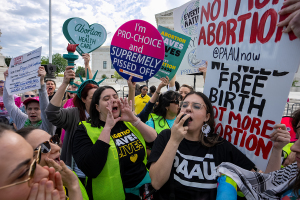With Sharia Law De-Emphasized, Egypt Christians Call Draft Constitution a Positive Step

Egypt's new draft constitution, to be voted on in a national referendum in January, is being hailed for its improvements over the 2012 Islamist-backed constitution. But the new constitution still has a number of shortcomings on religious and personal freedoms, according to concerned Egyptian Christians and human rights groups.
"Personally I'm cautiously optimistic," said Halim Meawad, co-founder of Coptic Solidarity, a U.S.-based international Coptic Christian human rights organization.
Meawad said the draft constitution is an improvement over the Muslim Brotherhood constitution of 2012, particularly with elimination of Article 219, which defined aspects of Sharia law on which legislation could be based. Article 219 and other aspects of the 2012 constitution led many liberal and Christian leaders to boycott the Muslim Brotherhood government, eventually culminating in popular protests and the military's ouster of Islamist President Mohamed Morsi in July 2013.
The new draft, by removing Article 219, eliminates the political authority that Al-Azhar University, Egypt's highest Islamic institution, had over the legislative process.
"The new draft maintains the position of Sharia in social conscience, but prevents any infringements on constitutional jurisdiction," Adel Ramadan, legal affairs official at local NGO the Egyptian Initiative for Personal Rights, told Ahram Online.
Nevertheless, controversial aspects still remain in the draft constitution, including Article 2, which states that the principles of Islamic Sharia are "the main source of legislation."
"The infamous Article 2, declaring the principles of Sharia to be the primary source for legislation, is still there like a sword drawn and can be used against non-Muslims at any time and in any situation," Meawad told JNS.org.
Meawad explained that Article 2 goes back to former Egyptian President Anwar Sadat, who included it to gain the support of Islamists.
"Article 2 introduced by President Sadat in 1971 to create an Islamic base for himself…Ever since, this article was used by authorities, including the judicial system, to discriminate against non-Muslims, especially Copts, despite the facts that other articles in the same constitution gives all the freedom of religion," Meawad said.
Egyptian Christians and liberals on the constitutional committee attempted to remove all mentions of Sharia law from the constitution. But the ultraconservative Salafi party, Al-Nour, insisted the mention of Sharia law remain, albeit in a watered-down version.
"Dr. Safwat al-Baiady and other Christian members of the constitutional committee made a weak attempt to change Article 2 because they knew very well that it is a mission impossible," Meawad said.
Another change in the draft constitution is Article 235, which addresses the longstanding complaint about the difficulty Egyptian Christians faced in constructing new churches. While church construction was permitted under President Hosni Mubarak, it required special permission from him or from the prime minister.
Under the new draft, Article 235 authorizes the Egyptian parliament to "organize building and renovating churches, guaranteeing Christians the freedom to practice their religious ritual."
"Christians have freedom of belief and practice," Safwat al-Baiady, president of the Protestant Churches of Egypt and a member of the constitutional committee, told Christianity Today. "And for the first time in the history of Egypt's constitutions, building churches becomes a right."
The new Article 235 will allow many of Egypt's Christians the opportunity to rebuild dozens of churches destroyed by the wave of violence by Islamic extremists in mid-August.
Amnesty International, which has been vocally critical of attacks on Egypt's Christians, said in a report that the new constitution was a step in the right direction, but that it "still falls short of Egypt's international human rights obligations."
"Unfortunately there is a glaring inconsistency between the aspirations in the draft, and the reality of ongoing human rights violations in Egypt," Amnesty International said.
"There is no guarantee that this inconsistency will go away. I was hoping for, or I should say dreaming of, a true secular and modern constitution with no contradictions between its articles," Meawad told JNS.org.
Despite the fact that Sharia law is still mentioned in the draft, Coptic Christian Pope Tawadros II endorsed the constitution and has urged followers to vote for it in the upcoming referendum in January, saying that participation is their duty. Ultimately, the draft should be accepted because it "could have been much worse," Meawad said.




























